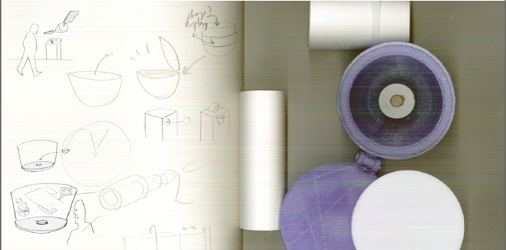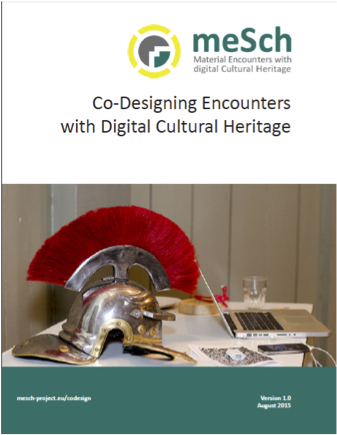Low Fidelity Prototyping is a simple way to make ideas tangible, to learn through making, and to quickly get key feedback on design concepts.
Low Fidelity Prototyping was used when exploring concept solutions to address the needs of Museon and Allard Pierson Museum. It allowed the cultural heritage professionals to express specific needs for their museums and to explore creative ideas.
During the early stages of the meSch project, a number of workshops between Waag Society and the museums Allard Pierson Museum and Museon resulted in the concept development and testing of low-fidelity prototypes in order to match the challenges of the two museums. Following consultation with the two museums, designers from Waag society produced physical prototypes demonstrating the concepts that they wish to test. The goal here was to make something tangible that is good enough to get the idea across. With the finished low-fidelity prototypes, the designers tested them in the context of the museum, putting the prototypes in the hands of the cultural heritage professionals and asking them what they made of it, make sure to get feedback to allow for the possibility of a second round of iteration of the prototype.
One of these low fidelity prototypes was the Compass, which was designed to provide a solution to navigation issues at Museon. The idea behind the Compass was to create routes through the museum following the different interests and profiles of the visitors. The Monocular was another low-fidelity prototype created to provide a means of layering information at Allard Pierson Museum so that visitors could explore the different perspectives and layers of one single artefact. The Loupe was finally developed as an extension of the Compass and Monocular concepts as it allowed for dual functionality – to act as a wayfinding device and to explore the different perspectives/layers of a single artefact.
Download the how-to sheet here.




